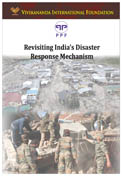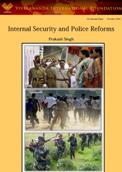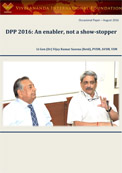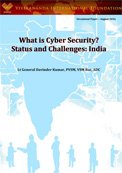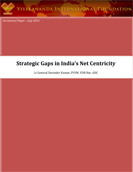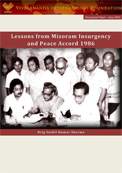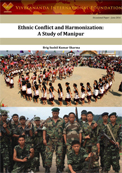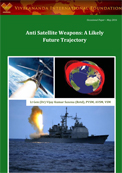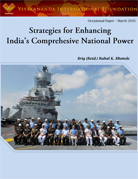One Day Round Table Conference (May 6, 2016) organised jointly by Vivekananda International Foundation (VIF) & Policy Perspectives Foundation (PPF)
Policing in contemporary India has turned into a major challenge, This challenge requires the evolution of new policing culture, better training, comprehensive modernisation and astute personnel management. However, efforts made towards that direction has not succeeded to the extent desirable. Click here to read full paper
DPP or no DPP the onus of success or failure lies in the hands of those who operate the DPP. Like they say, the law is only as good as the enforcer of the law. DPP 2016 or DPP 2056, it will be only as good as the persons who operate it, who interpret its content and apply the same to procurements at hand. Click here to read full paper
The transition from an industrial to an information era has created a new domain, “Cyberspace” and ushered in a new security paradigm with new threats to both national and human security. With large scale automation, rapid penetration of ICT and connectivity the developed nations are enjoying a much better quality of life that also makes them more vulnerable to cyber interventions. Click here to read full paper
There are a large numbers of militant groups involved in insurgent activities in Northeast India. Over the years, consequent to the perceived neglect, ethnic and identity insecurity, these groups have been sustaining their ideological struggle. However, with the emergence of multiple groups espousing to fight for the same segment of masses, these erstwhile ideological struggles have mostly degenerated into an economic opportunism. Irrespective of the group, the major source of income happens to be through “Taxation and Extortion”.
In the digital battle field of 21st century, Technology and Information are the new currencies of power. Exploitation of both of these to create efficiency, economy of effort and facilitate full spectrum operations;nuclear to asymmetric and strategic to tactical, is the essence of Net-centricity. Click here to read full paper
Signed on 30 June 1986, between the Mizo National Front (MNF) and the Government of India, the Mizo Accord so far remains the only successful Peace Accord of its kind in independent India’s history. Click here to read full paper
Abstract Manipur is a melting pot of diverse cultures and ethnicities and has gradually evolved into a dynamic multicultural society. The Nagas, Kukis and Meiteis have shared common spaces and have been competing for the same land and other resources, since times immemorial, thereby leading to an ethnic conflict which has often manifested itself in violence and bias against each other. Click here to read full paper
The concept of ASAT weapons has evolved over time as a logical progression from the mother concept of Anti Ballistic Missiles (ABM) or its more recent coinage,the Ballistic Missile defence (BMD)-- a Missile-based defence against the adversary's threat of Ballistic Missiles. Click here to read full paper
Comprehensive National Power – Concept and Utility National power is defined as the ability of a nation to attain its strategic objectives by directed action. The use of power would be based on the overall national vision based on the aspirations of the people at large and the capability of the leadership to fulfill the same. Click here to read full Paper

